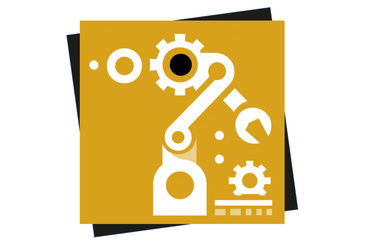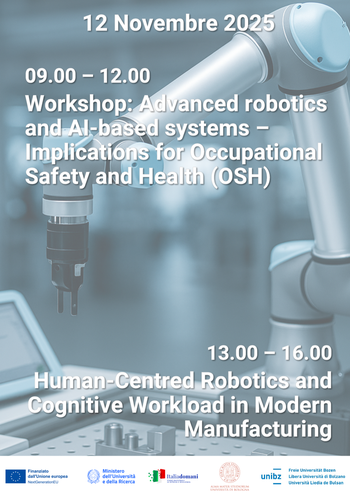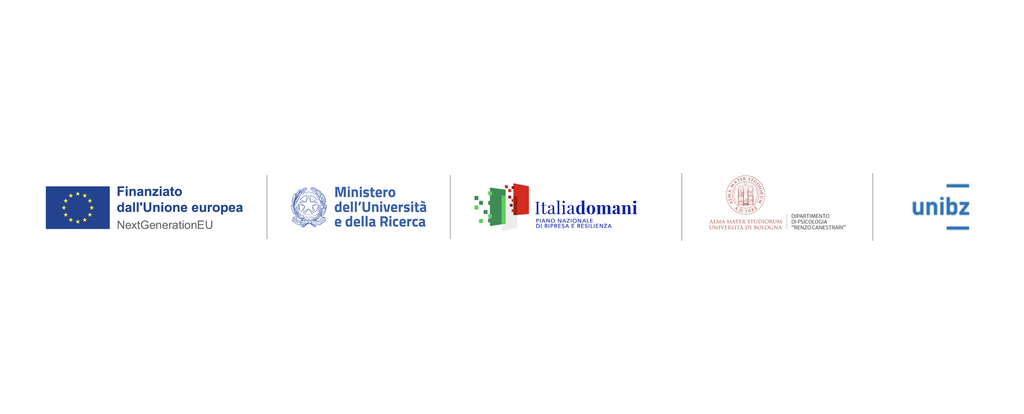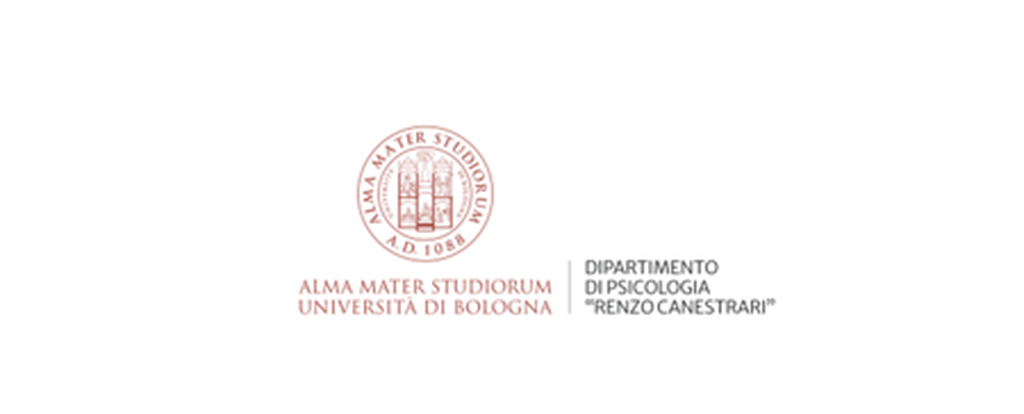
ProMentoHR
Assessing Cognitive Workload in Human-Robot Collaboration and Cooperative Assembly Systems
Collaborative robotics is a vital technology in Industry 4.0, particularly in the rapidly expanding market of collaborative assembly. This area of industrial human-robot interaction (HRI) not only focuses on mechanical safety but increasingly recognizes the importance of cognitive ergonomics and human factors, which are critical for operator safety, well-being, and performance. Addressing these aspects requires a human-centered approach to developing Collaborative Assembly Systems (CASs), highlighting the need for interdisciplinary research.
The project PromentorHR aims to enhance human factors in industrial HRI by developing and validating a new cognitive workload (CWL) assessment method, building on the Cognitive Load Assessment for Manufacturing model (CLAM) proposed by Thorvald et al. in 2017. The updated method, named “ProMentoHR,” seeks to minimize subjective biases in CAS design and specifically address how design elements affect operator CWL.
Additionally, the project will develop a practical tool based on the enhanced CLAM methodology, intended for use by assembly system experts who may not specialize in human factors. This tool will undergo experimental validation through a case study in a realistic setting, ensuring it effectively integrates cognitive requirements into human-centered CASs.
ProMentoHR aims to improve operators’ working conditions, safety, and well-being, while also enhancing production performance. The project will utilize both qualitative and quantitative methods and maintain a user-centered design approach. Feedback and recommendations will be collected through surveys and interviews with experts in manufacturing systems, robotics, and human factors. This input will inform the development of the methodology and the integration of cognitive ergonomics into CAS features and HRI patterns.
Ultimately, the project focuses on advancing theoretical understanding and practical applications of how operators’ CWL can be managed in manufacturing settings, aiming to improve worker conditions and optimize the effectiveness of collaborative robotics in industrial environments.

Human-Centred Robotics and the Human Factor: Towards Safer and Smarter Collaboration
On Wednesday, 12 November 2025, the University of Bologna will host a full-day event at the Cesena Campus dedicated to the evolving relationship between advanced robotics, AI-based systems, and human factors in the workplace.
The morning session, organised by the Federal Institute for Occupational Safety and Health (BAuA, Germany), will focus on “Advanced Robotics and AI-based Systems: Implications for Occupational Safety and Health.”
Dr. Patricia Rosen and Dr. Sascha Wischniewski will share insights from BAuA’s latest research on how intelligent automation is reshaping work organisation, safety, and well-being in modern manufacturing environments.
In the afternoon, the ProMentoHR team will lead a hands-on workshop on “Assessing Cognitive Workload in Human–Robot Collaboration.”
The session will introduce the HERALD tool, a practical, human-centred method to evaluate cognitive workload in collaborative assembly systems. Participants will explore the 11 key factors behind cognitive effort in human–robot teamwork, apply the tool to a real case study, and share feedback on its usability and clarity.
ProMentoHR is a research project funded by the Italian PRIN – NextGenerationEU Programme (project number 2022C88239) and jointly developed by the University of Bologna and the Free University of Bozen-Bolzano.
The project aims to design innovative approaches that integrate cognitive ergonomics into the development of safe, efficient, and sustainable human–robot collaboration.
This event offers an opportunity to combine scientific knowledge and practical experimentation — bringing together students, researchers, and professionals interested in the human side of industrial innovation.
📅 Date: Wednesday, 12 November 2025
🕐 Time: 09:00 – 16:00 (ProMentoHR Workshop: 13:00 – 16:00)
📍 Location: University of Bologna – Cesena Campus, Aula D, Piazza Aldo Moro 90
💻 Participation: Free, in-person or online
🔗 Registration link: Click the link below to register
https://forms.office.com/Pa[…]UY1OFFNVk5BM0pZT0c3OVVJVC4u
Enhancing Human–Robot Collaboration through Multimodal Intention Recognition
October 2025
The ProMentoHR project continues to advance the frontiers of human-centred manufacturing.
In its latest experimental study, the research team explored one of the most delicate challenges in human–robot collaboration (HRC), that is, how humans and robots can safely and efficiently share tools and resources within the same workstation.
In collaborative assembly, the ability to coordinate tool use, such as screwdrivers or fixtures, requires not only physical precision but also mutual understanding of intentions between humans and robots. Building on previous phases of ProMentoHR, this study introduces an AI-based multimodal system capable of recognizing human intentions in real time.
By combining body motion data (from wearable sensors) with gaze tracking (from eye-tracking glasses), the system can anticipate when a human operator intends to use a shared tool. A neural network processes these signals to help the robot adjust its behaviour, thus avoiding unsafe movements, idle waiting, or conflicts over tool use.
The experimental validation, conducted with 16 participants at the Smart Mini Factory Lab of the Free University of Bozen-Bolzano, tested the system across safety, productivity, and human factors indicators, including trust and perceived cognitive workload.
Our results show that integrating gaze and motion data enables safer and more fluent collaboration, improving productivity without increasing cognitive strain.
This innovative approach represents a concrete step toward Industry 5.0, where robots act as intelligent partners, adapting to humans, supporting decision-making, and promoting cognitive well-being in industrial environments.
Experimental Validation Begins
July 2025
The ProMentoHR project has now entered its most exciting phase, the experimental testing!
At the Smart Mini Factory Lab at the Free University of Bozen-Bolzano, we are running controlled experiments to validate the effectiveness of the HERALD tool in real collaborative assembly scenarios.
During these sessions, participants’ reactions are monitored through eye-tracking and wearable sensors, providing objective data on attention, cognitive workload, and task performance. Interviews and survey are also conducted to grasp participants' experience and feebdack.
This step will allow us to refine and calibrate the HERALD scoring system, bridging the gap between human factors theory and industrial application.
The ProMentoHR Tool Takes Shape!
April 2025
After months of collaboration and expert consultation, our team is proud to share that the HERALD tool, the Human-centric Evaluation of Robotics and Assembly cognitive LoaD, has reached a new stage of development!
Following two Delphi rounds involving international experts in robotics, ergonomics, and psychology, the tool now includes 11 validated factors that together describe the main sources of cognitive workload for assembly operators working with collaborative robots.
These factors cover everything from physical ergonomics and task complexity to human–robot communication, robot predictability, and adaptability. The result is a practical, scientifically grounded instrument that helps engineers and designers make industrial workstations truly human-centred.
The updated HERALD Handbook provides clear definitions, examples, and scoring indicators, making it accessible even to non-experts in human factors.
Stay tuned, the next step is experimental validation!
News Release: Delphi Study Round 2 is about to begin!
October 9, 2024
With the successful completion of the first round, we are excited to announce the start of our second ProMentoHR Delphi Study.
Our research team has engaged a diverse group of global experts in this field to critically assess and provide feedback on our newly developed methodology for evaluating the cognitive workload of assembly operators working with collaborative workstations.
The participants' expertise and insights from their respective domains were invaluable in ensuring the tool’s accuracy and relevance, ensuring its effectiveness in real-world applications.
With these revisions now in place, we are ready to initiate the second round of the Delphi Study.
We extend our gratitude to all participating experts for their time, effort, and commitment to this study. We look forward to the ongoing collaboration and further validation of our methodology.
Stay tuned for more updates as we continue this exciting journey!
The ProMentoHR Delphi Methodology
Thanks to the Delphi Study methodology, experts in the Human Factors, Human-Robot Collaboration and Industrial Engineering fields are going to contribute to the development of a new Cognitive Workload assessment tool in the context of industrial collaborative assembly systems.
The process began by crafting a comprehensive questionnaire aimed at eliciting a broad range of insights and opinions. This initial survey, which will be distributed electronically, comprises open-ended questions designed to gather diverse perspectives.
Additionally, the online format facilitates efficient data collection and allows for a geographically dispersed group of experts to participate, ensuring a rich and varied pool of knowledge.
The expert panel, selected for their extensive knowledge and experience, will be asked to provide detailed responses based on their individual expertise. The primary goal of this round is to collect a wide array of qualitative data, identifying common themes, potential challenges, and innovative ideas. This information serves as the foundation for subsequent rounds, where these insights will be analyzed and refined through iterative feedback, ultimately converging towards a consensus.
This iterative process will allow the refinement of the assessment tool based on the constructive feedback received. The ultimate goal is to achieve a high level of agreement among the experts, ensuring that the final tool is a comprehensive and reliable measure for the assessment of cognitive workload in collaborative assembly systems.
RESEARCH PROJECT TEAM
Marco De Angelis
Assistant Professor, Department of Psychology, University of Bologna
Luca Gualtieri
Assistant Professor
Faculty of Engineering - Institute for Industrial and Energy Engineering
Free University of Bozen
Federico Fraboni
Assistant Professor, Department of Psychology, University of Bologna

